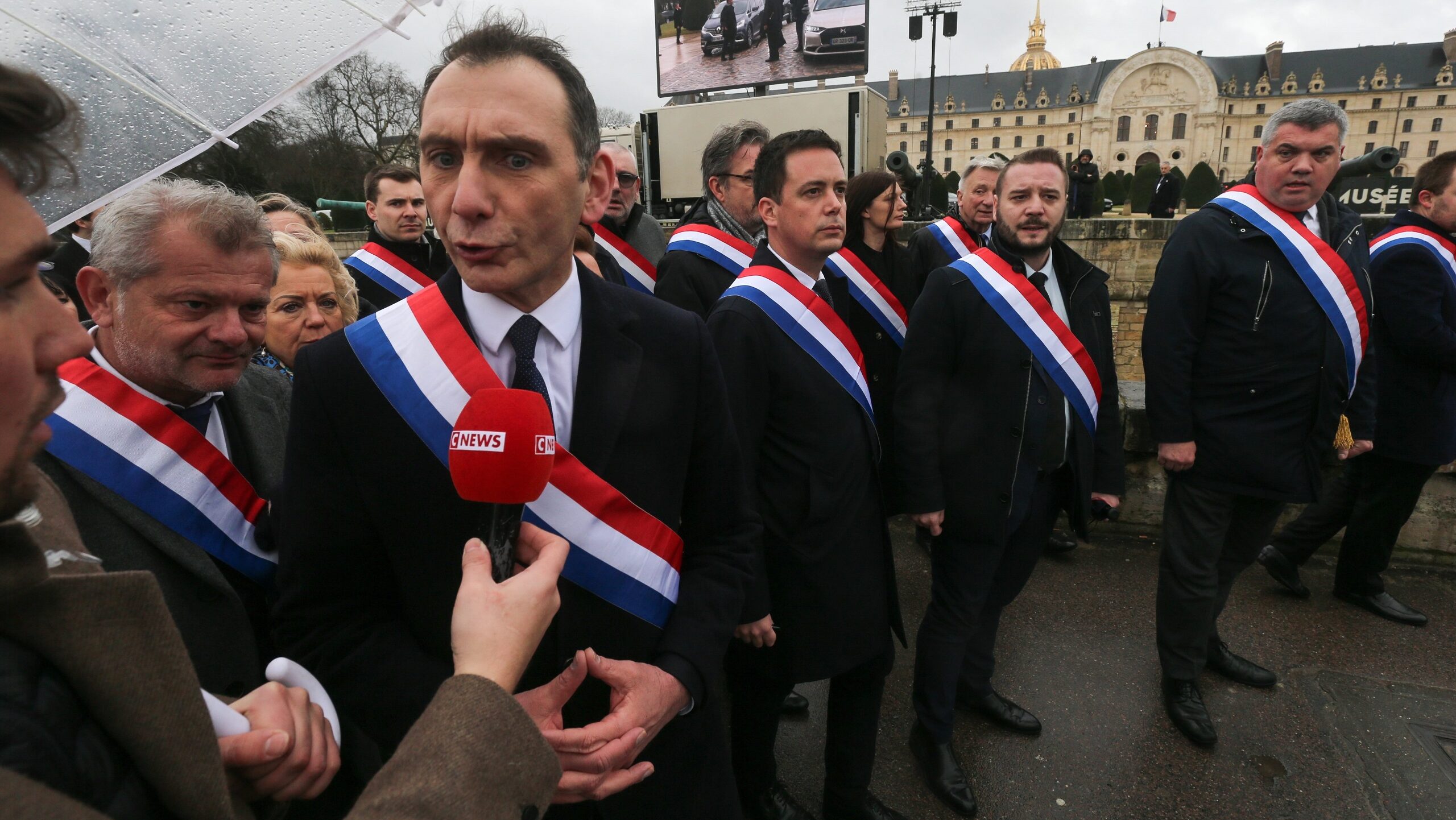Europe’s Far-Right Parties Gain Ground: What It Means for the Middle East
With electoral gains across multiple countries, Europe’s far-right parties are poised to reshape the continent’s approach to Mideast affairs
Earlier this month, nearly 200 million citizens of the European Union cast their votes for the European Parliament election. Results were mixed across the EU’s 27 member countries, and the impact of the European Parliament’s new makeup on politics in the Middle East remains to be seen.
Far-right parties were elected to the governing coalitions of Finland, Sweden, the Netherlands, Italy, and Croatia. In Portugal and Slovakia, the far right increased their vote share significantly. The far-right party in Austria won the plurality of votes, adding momentum in advance of the national elections in the fall.
France’s far-right National Rally party (RN) captured 31% of the vote, surpassing President Emmanuel Macron’s centrist Renaissance party. Macron responded to the results by calling for snap elections, which may well result in RN’s Marine Le Pen taking the presidency.
In Germany, the far-right Alternative for Germany (AFD) party gained nearly 16% of the final tally, while Chancellor Olaf Scholz’s coalition of Greens, Liberals, and Social Democrats fared poorly.
Italian Prime Minister Giorgia Meloni’s right-wing populist Brothers of Italy party won the EU elections in Italy with just under 30% of the vote.
Despite these far-right gains, the majority of seats were appointed to centrist parties. The two major pro-European centrist blocs, the center-right European People’s Party (EPP) Group and the center-left Socialists and Democrats (S&D), kept roughly the same number of seats.
The EPP remains the largest group in the parliament with 189 seats. S&D lost 19 seats but remains the second-largest party with 135 seats.
“Overall, we saw that the far-right parties gained votes, but it is not a total victory and their real influence in the parliament depends on how united they can be,” James Moran, associate senior fellow at the Center for European Policy Studies, told The Media Line.
He noted that the various far-right parties are not necessarily aligned regarding support for Israel and Ukraine.
Many far-right parties are against NATO and the overall support for Ukraine is still seen as controversial
This holiday season, give to:
Truth and understanding
The Media Line's intrepid correspondents are in Israel, Gaza, Lebanon, Syria and Pakistan providing first-person reporting.
They all said they cover it.
We see it.
We report with just one agenda: the truth.
Please support TML's boots on the ground.Donate

“Many far-right parties are against NATO and the overall support for Ukraine is still seen as controversial,” Emamnuel Navon, director of the European Leadership Network’s Israel branch (ELNET Israel), told The Media Line. “In fact, the far-right members of the council may push to weaken the EU’s policy in favor of national processes and more isolationism.”
He said that some far-right European parties support Israel’s struggle against terrorist threats, while others are “antisemites to the core.”
The main issue leading up to the elections was migration policy, which seems to be the only thing the various far-right factions agree on.
Stefan Lehne, senior fellow at Carnegie Europe, told The Media Line that the far-right parties intend to advance two immigration policy goals. First, he said, the parties want to sign more agreements with countries through which migrants travel to Europe, building on existing agreements with Egypt, Turkey, Tunisia, and Mauritania.
The second priority is “the securitization of migration to the EU,” Lehne said, including an emphasis on strengthening Frontex, the EU’s border management agency.
Navon said that economic hardship, high rates of immigration, and a low national birth rate contributed to the right wing’s success in the elections.
One myth was debunked during these elections: that young people vote mostly on the left and older people on the right
“One myth was debunked during these elections: that young people vote mostly on the left and older people on the right,” he said. “A clear example was seen by the 17% of 16-to-24-year-olds who voted for AFD in Germany, and 32% of French youth voted for RN in France. This is of course a result of the dissatisfaction of younger generations, which turned to the far right for a solution.”
EU foreign policy regarding the Israel-Hamas war is still fragmented. Norway, Spain, and Ireland all recognized a Palestinian state leading up to the European elections. Denmark’s parliament rejected a proposal to recognize a Palestinian state.
Islamophobia and antisemitism are both on the rise in Europe amid the ongoing war.
In France we see rampant antisemitism growing stronger, and this is clearly intertwined with political stands
“In France we see rampant antisemitism growing stronger, and this is clearly intertwined with political stands,” Daniel Shadmy, ELNET Israel’s general spokesperson, told The Media Line.
Israeli companies were recently banned from Eurosatory, a security industry exhibition held in France. Macron made that decision after being pressured by the left, Shadmy said.
“The Israeli businesses were excluded from the competition for being involved in ‘genocide,’” he said. “Then all Israeli citizens were prohibited to attend.”
Shadmy said he does not expect the results of the European elections to affect relations between the EU and Israel.
“We are not expecting any changes, since [European Commission President] Ursula von der Leyen will most likely be reelected for a second term,” he said. “Moreover, the bilateral ties between EU and Israel will remain strong.”
Giorgia Valente is a recent graduate of Ca’ Foscari University of Venice and an intern in The Media Line’s Press and Policy Student Program.

